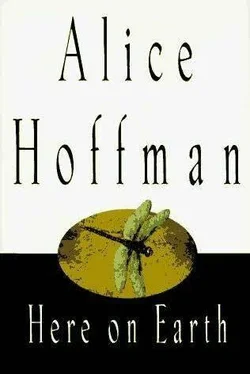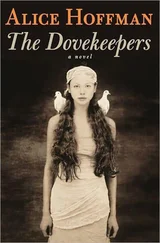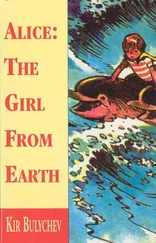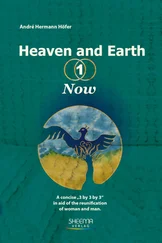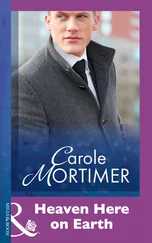Alice Hoffman - Here On Earth
Здесь есть возможность читать онлайн «Alice Hoffman - Here On Earth» весь текст электронной книги совершенно бесплатно (целиком полную версию без сокращений). В некоторых случаях можно слушать аудио, скачать через торрент в формате fb2 и присутствует краткое содержание. Жанр: Современная проза, на английском языке. Описание произведения, (предисловие) а так же отзывы посетителей доступны на портале библиотеки ЛибКат.
- Название:Here On Earth
- Автор:
- Жанр:
- Год:неизвестен
- ISBN:нет данных
- Рейтинг книги:5 / 5. Голосов: 1
-
Избранное:Добавить в избранное
- Отзывы:
-
Ваша оценка:
- 100
- 1
- 2
- 3
- 4
- 5
Here On Earth: краткое содержание, описание и аннотация
Предлагаем к чтению аннотацию, описание, краткое содержание или предисловие (зависит от того, что написал сам автор книги «Here On Earth»). Если вы не нашли необходимую информацию о книге — напишите в комментариях, мы постараемся отыскать её.
Here On Earth — читать онлайн бесплатно полную книгу (весь текст) целиком
Ниже представлен текст книги, разбитый по страницам. Система сохранения места последней прочитанной страницы, позволяет с удобством читать онлайн бесплатно книгу «Here On Earth», без необходимости каждый раз заново искать на чём Вы остановились. Поставьте закладку, и сможете в любой момент перейти на страницу, на которой закончили чтение.
Интервал:
Закладка:
“I hope you know more about racehorses than you do about your family,” Jimmy Parrish says as he spoons sugar into the coffee he’s been served.
“I don’t,” Gwen says.
She has a queasy feeling in her stomach. It sounds as if she and Hank come from the worst possible gene pool. She wishes they weren’t related, that they were perfect strangers who were old enough to make their own plans, without interference from anyone.
“I’ve been riding that horse over at Guardian Farm. The one you were talking about. Tarot.”
Jimmy Parrish has been served his chowder, but now he puts down his spoon. He looks at Gwen, hard, and shakes his head.
“You’re lucky that horse isn’t in his prime, or you’d already be dead.”
“I don’t think so,” Gwen says. She puts a dollar on the counter to pay for her Coke, then grabs all her books. “I’m the one in my family who’s going to live.”
She walks home through the cold late-afternoon sunlight. When she gets to the dirt road, Hank is waiting for her, sitting on a stone fence.
“You didn’t come to tea,” he says, when Gwen perches beside him. “I had to eat all the cookies your mother put out, to be polite. She’s nice.”
“No, she’s not.” Gwen stacks her pile of books between them; her posture is stiff.
“Okay.” Hank realizes he has to be careful here. She’s upset about something, and he has no idea what it might be. “I was only in the house for about half an hour. She seemed nice for that amount of time.”
“We’re first cousins,” Gwen says. “Did you know that?”
Hank leafs through the pages of one of the library books. There is a crow somewhere close by and it starts its insufferable calling.
“Did you know?” Gwen asks.
The grass in the fields is yellow now, and the squirrels are frantically collecting the last of the acorns. She can tell by looking at him: He knew. Gwen shakes her head. “You should have told me.”
“It doesn’t matter,” Hank tells her. “That’s why I didn’t say anything. The way we feel is what matters.”
Gwen stares straight ahead, at the maples and the oaks, then reaches to put her hand in his. Maybe some people would disapprove, but Gwen doesn’t care. When Hank closes his hand around hers, that’s it. They’ve made their bargain; they’ve sealed their fate. What she ever did to deserve him, Gwen will never understand. Maybe she’s a better person than she thought she was; maybe there’s a reason why she would be lucky enough to find someone like Hank. They walk across the hill together, and they keep going, past the fences and the old trees, until they can see almost all of Guardian Farm, a sea of gold and green. Beyond the split-rail fence that lines the driveway, there is the piece of road that leads into Route 22.
“The devil’s comer,” Gwen says.
Hank laughs. “Who told you that?”
“Some guy in town.”
There are several logging trucks going by on Route 22; when they honk their horns the sound echoes into the sky.
“Are you saying there’s somebody else?” Hank teases since it is, at the moment, his biggest fear; the doubt Hollis placed there, for his own entertainment. “Some other guy?”
“No.” Gwen grins to think he might be jealous of old Jimmy Parrish. “How about you? Is there somebody you’re dying to be with?”
“You,” he tells her. Exactly what she wanted to hear. “Only you,” he says.
12
March sits on the braided rug in the living room looking at a photograph of her brother taken when he was sixteen. It was summer and Alan’s hair had been bleached almost white by the sun. He wears a polo shirt and jeans and white sneakers and he’s grinning right at the camera. He hadn’t yet failed at school, or marriage, or fatherhood. He was nothing more than a boy who didn’t know when to quit, or how to treat people; he was fun-loving, but selfish, with a regrettable nasty streak. March has driven out to the Marshes five times, and five times he has refused to answer the door. He’s gone, that’s what it is. Someone lives in that shack, all right, but the boy whose photograph March examines has vanished like a handful of dust.
The clock on the mantel is ticking, the one March’s father bought in Boston, the single possession she can’t bring herself to pack away. She has gone through the boxes of photographs, all arranged in albums and dated with Judith Dale’s neat handwriting. March will be keeping only two photographs for herself, to place into frames. One is of her and Hollis, a hazy snapshot in which they look like ragamuffins, with torn shorts and dirty knees, all dark eyes and know-it-all grins. The other is of Judith Dale skating on Olive Tree Lake on a winter day. Judith’s head is tossed back, her skin is luminous; all around her the world is icy and white. Growing up, March never noticed that Judith Dale was beautiful, or that she was young, far younger in that photograph than March is right now.
Today, March is taking a pot of asters to Judith’s grave. It is the perfect day for a solitary mission such as this-Hollis went to Boston on business; Gwen is safely at school. It’s only Richard who holds her back, even after she’s packed up the photograph albums. March spoke to him last night, finally, but he refused to understand.
“I don’t think I’m clear on this,” he kept repeating. “You’re staying?”
It was the school, she told him, so much better for Gwen: fewer drugs, fewer temptations. Just a change, a tryout. She’d forgotten how peaceful it was here, out in the country: she’d actually been inspired to work, so could he send on a box of her tools, and the packet of semiprecious stones in her night table drawer? Gwen was so happy, after all, she was doing so well; why, she’d even begun taking care of that old horse Belinda used to ride.
“Tarot?” Richard had said. “She’s spending time at the Farm?”
For those new to lying, it’s easy to get caught.
“Not exactly,” March had answered.
“Well, what exactly?”
March guessed that Richard had the bedroom window open as he spoke to her, and that the scent of lemons was filling the room. She had taken special care of that tree in their garden, forsaking poppies and jade plants whenever there was a drought, using all her rationed water for that one tree.
“Richard,” she had said, and for a very long time there was no response.
“You’re not going to do this to us, are you?” he had finally asked.
She thinks about the sound of his voice, so far away, as she gets her gloves and coat from the closet, then takes the asters from the table in the front hall. When she goes to the door, the dog follows, blocking her way.
“Move,” March tells it.
The dog looks up at the closet where its leash is kept on a shelf, then makes a noise, somewhere between a yip and a bark.
“Oh, all right,” March tells the thing. “But behave.”
She grabs the leash, and allows Sister to run ahead to the Toyota.
“Stay away from the flowers,” March says as the dog situates itself beside the asters. “Don’t eat them.”
When March gets to the cemetery, there are no other cars in sight. She parks in a pile of wet, brown leaves, then clips on the dog’s leash and takes the flowers.
“Don’t pull,” she tells Sister, who seems to know exactly where they’re going.
There’s a driving range which borders the cemetery, and March’s father used to joke that was the reason why they couldn’t keep gravediggers on the job. Man after man had gotten beaned on the head, and every one of those stray balls had been hit by Bill Justice, who continued to be a terrible golfer even though he went out to practice nearly every day, in an effort to improve his weekly game with Henry Murray. Now March wonders if the Judge only said he was going to the driving range; if, in fact, he spent those times with Judith Dale. She wonders too if her father knew-if he closed his eyes to what was going on in spite of his warm feelings for Louise. Amazing what people will tolerate. Richard, for instance, knows the way March feels about Hollis, and yet before he hung up the phone he’d said, Just come back. It will be all right. We’ll manage.
Читать дальшеИнтервал:
Закладка:
Похожие книги на «Here On Earth»
Представляем Вашему вниманию похожие книги на «Here On Earth» списком для выбора. Мы отобрали схожую по названию и смыслу литературу в надежде предоставить читателям больше вариантов отыскать новые, интересные, ещё непрочитанные произведения.
Обсуждение, отзывы о книге «Here On Earth» и просто собственные мнения читателей. Оставьте ваши комментарии, напишите, что Вы думаете о произведении, его смысле или главных героях. Укажите что конкретно понравилось, а что нет, и почему Вы так считаете.
